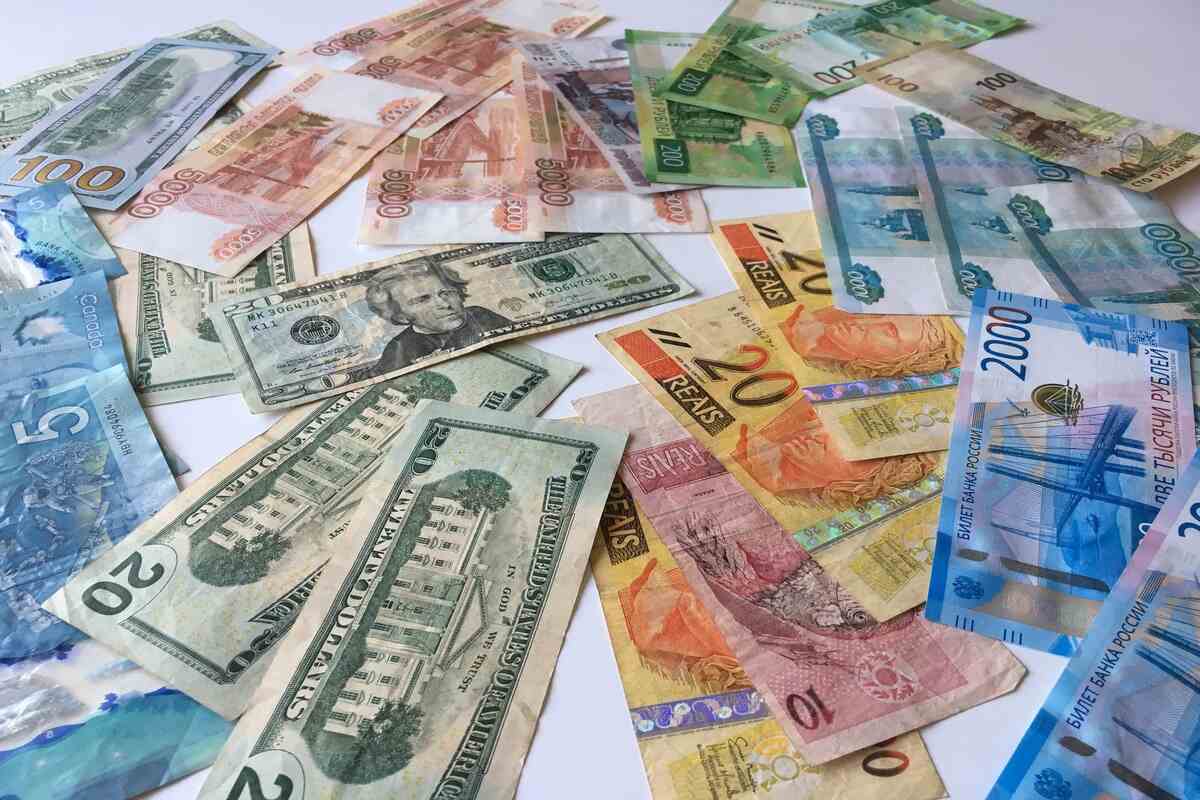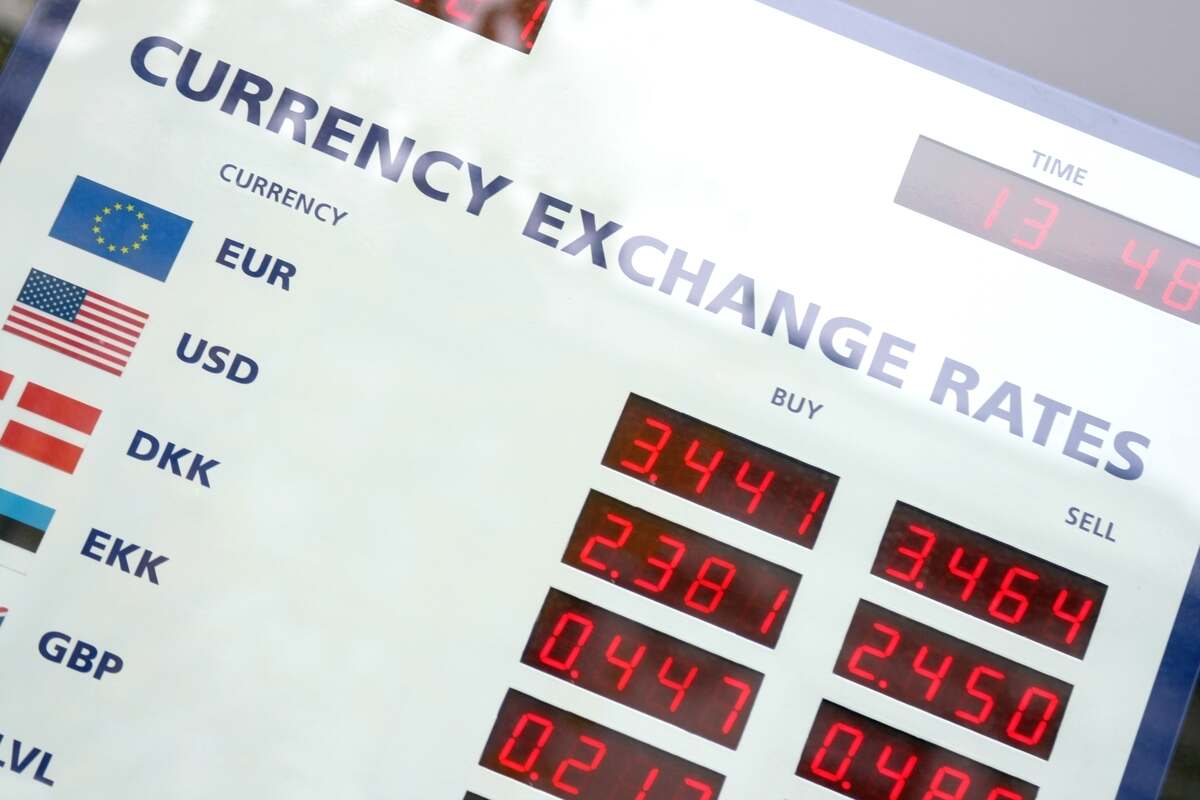Why Do Currency Fluctuations Happen?
Currency fluctuations, also known as exchange rate fluctuations, are a common occurrence in the global financial landscape. They refer to the changes in the value of one currency concerning another, and these fluctuations can have significant effects on international trade, investments, and economies.
Understanding the causes and implications of currency fluctuations is crucial for businesses, governments, and individuals to make informed financial decisions in an increasingly interconnected world. In this comprehensive guide, we will explore the various factors that drive currency fluctuations and their wide-ranging effects.
What Are Currency Fluctuations?
Currency fluctuations are variations in the exchange rate between two currencies, reflecting changes in the relative value of each currency. These fluctuations can be driven by a multitude of factors, both short-term and long-term, and can have profound impacts on the global economy.
Causes of Currency Fluctuations
Currency fluctuations occur due to the complex interplay of economic, political, and market forces. Here are some of the key factors that contribute to these fluctuations:
1. Supply and Demand
Supply and demand is a key concept in economics, and it plays a central role in understanding currency fluctuations. It's all about how much of a particular currency is available and how many people want to buy or sell it.
When we talk about the supply of a currency, we're essentially looking at how much of it is available in the foreign exchange market. Think of it like a product on a store shelf – if there's a lot of it, the price tends to be stable or may even go down. In the currency market, if there's an abundant supply of a particular currency, its value can remain steady or even decrease.
Demand, on the other hand, is about how much people want a specific currency. Just like with popular items in a store, when currency demand increases, its value tends to rise. So, if many people or businesses want to get their hands on a particular currency for various reasons (maybe they're investing, traveling, or buying goods from another country), its value goes up.
Here's how this works in a practical sense: Let's say a country has a strong and stable economy, making its currency an attractive choice for investors and businesses. As a result, there's a high demand for that currency, and its value goes up compared to others. But, if a country faces economic challenges or uncertainty, fewer people may want their currency, causing its value to decrease.
Currency supply and demand are influenced by various factors like interest rates, economic indicators, and geopolitical events, which we'll explain further in the article. It's a bit like a tug-of-war between buyers and sellers in the foreign exchange market, and this constant push and pull leads to currency fluctuations.
2. Interest Rates
Think of interest rates as the "price" of money. They represent the cost of borrowing or the return on saving or investing your money. When it comes to currency fluctuations, interest rates play a big role in determining the value of a country's currency. Imagine you have some extra cash, and you want to put it in a bank or invest it in government bonds.
If a country offers higher interest rates on those savings and investments, it means getting a better deal. This attracts people from other countries who want to earn more from their savings, and they need to exchange their currency for the one with higher interest rates. So, higher interest rates in a country create more demand for its currency, which, in turn, makes its value go up in the global exchange rate dance.
3. Political Stability
A country with a stable political environment fosters confidence among investors and businesses. When people are confident in a country's future, they're more willing to invest and trade in that country, increasing the demand for its currency and boosting its value. On the flip side, political turmoil or uncertainty can lead to currency depreciation as investors become cautious and seek safe havens for their funds.
4. Market Speculation
Traders and investors try to predict future currency movements, and their actions can create rapid price swings. Positive news, rumors, or sentiment can spark buying frenzies, elevating a currency's value. Conversely, negative sentiment or sudden changes in perception can lead to rapid depreciation. The collective actions of market participants in pursuit of profit or risk avoidance make speculation a dynamic force in the world of currency fluctuations.
5. Central Bank Policies
Central banks act as currency gatekeepers, using policies like interest rate adjustments, open market operations, and quantitative easing to influence their currency's value. When a central bank raises interest rates, it can attract foreign investment, strengthening the currency. Lower rates may deter investors and weaken the currency. These policy moves are a powerful lever in shaping currency values.
6. Trade Balances
A country's trade balance is a simple concept - the difference between the value of goods and services it exports to other countries and the value of goods and services it imports. If a country exports more than it imports, it has a trade surplus.
This surplus can increase demand for its currency, making it stronger. But, if a country imports more than it exports, it has a trade deficit, which can weaken its currency because it signifies more money leaving the country than coming in. In essence, trade balances have a direct impact on a nation's currency value by influencing the supply and demand for that currency in international markets.
7. Geopolitical Events
Geopolitical events refer to significant political occurrences that transcend national borders, such as conflicts, trade disputes, or sanctions. These events introduce a layer of uncertainty into the financial world.
For instance, a trade war between two major economies can disrupt global supply chains, impacting currencies. In times of uncertainty, investors often seek refuge in stable currencies like the US dollar or Swiss franc, driving up their value.
Geopolitical events can create sudden and sharp currency fluctuations as they bring risk, uncertainty, and potential economic consequences into the picture. Currency traders keep a close eye on these events as they unfold, as they can significantly impact the currency market's dynamics.
8. External Shocks
Natural disasters, global economic crises, or other unexpected events can disrupt currency markets and cause abrupt fluctuations. These shocks can lead to risk aversion and swift changes in exchange rates.
9. Speculative Attacks
A speculative attack happens when investors, both from inside and outside a country, sell domestic currency and buy foreign currency in the hopes of benefiting from fluctuations in exchange rates. This often occurs when exchange rates are fixed, and central banks get involved in the foreign exchange market by offering foreign currencies.
However, when central banks try to stop these speculators, they can use a lot of their foreign currency reserves. This can lead to a currency crisis, which means the local currency loses its value quickly.
10. Exchange Rate Regimes
Exchange rate regimes are the rules that govern how a country manages its currency's value concerning other currencies. They can be broadly categorized into two types: fixed and floating exchange rate regimes.
In a fixed regime, the government or central bank actively intervenes in the currency market to keep the exchange rate stable. In a floating regime, exchange rates are largely determined by market forces, such as supply and demand.
The choice of regime has significant implications for a country's currency and its response to economic shocks and policy changes. Exchange rate regimes can influence the level of currency fluctuations and the degree of market volatility.
Implications of Currency Fluctuations

Understanding the causes of currency fluctuations is essential, but it's equally important to grasp their implications:
- International Trade: Currency fluctuations directly affect international trade. A stronger domestic currency can make exports more expensive, potentially reducing demand for a country's products abroad. A weaker currency can boost exports but may also increase the cost of imports.
- Foreign Investment: Currency fluctuations can significantly impact foreign investment. Investors seek stable or appreciating currencies to protect their investments. A volatile or depreciating currency can deter foreign capital inflows.
- Inflation and Interest Rates: Currency movements influence a country's inflation rate. A depreciating currency can lead to higher inflation due to increased import costs. Central banks may respond by raising interest rates to combat inflation, which, in turn, affects investment and economic growth.
- Economic Growth: The strength of a country's currency can influence its economic growth. A strong currency can hinder export-oriented economies, while a weaker currency can stimulate economic growth through increased export competitiveness.
- Foreign Debt: Countries with foreign-denominated debt may face challenges when their currency depreciates. The cost of servicing this debt in foreign currency increases, potentially leading to financial strain.
- Investment Decisions: Individuals and businesses must consider currency fluctuations when making investment decisions, especially if they have international holdings. Currency risk can impact the overall returns on investments.
- Government Policies: Currency fluctuations can lead governments to adjust policies to stabilize their economy. Central banks may intervene in currency markets or modify interest rates to influence the exchange rate.
- Tourism and Travel: Currency movements can impact the affordability of international travel. A strong domestic currency makes foreign travel more affordable for residents, while a weak currency can attract tourists.
Exchange Foreign Currencies Online
Understanding the intricate world of currency fluctuations is not just a matter of financial knowledge; it's a key to informed decision-making in today's globalized economy. Whether you're a seasoned investor, a business owner, or an individual planning international travel, the dynamics of exchange rates can impact your financial choices.
With this knowledge in mind, are you ready to dive into the dynamic world of foreign currencies?

At US First Exchange, we not only demystify the world of currency fluctuations but also offer practical solutions. If you wish to exchange over 20 exotic currencies right in the US, you can do it here. We provide a simple process for online currency exchange, multiple payment methods, competitive rates, and will even deliver high-grade banknotes right to your address.
Whether you're looking to purchase South African rand, sell Mexican peso, or trade widely-used currencies such as the euro or British pound, US First Exchange has got you covered. Discover how it works and easily buy or sell currencies at your own convenience.


